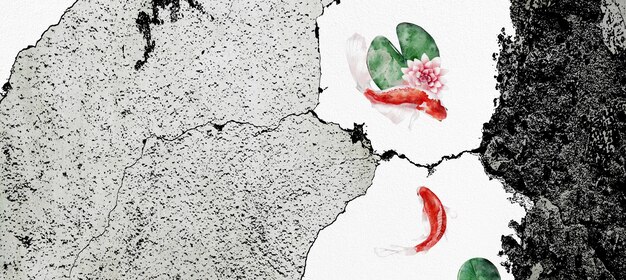New Lawsuit Threatens US Distribution of Popular Korean Doramas

A new lawsuit has been filed against a Korean production company, raising concerns about potential disruptions to the distribution of popular doramas in the United States.
The world of Korean dramas, or doramas, is abuzz with concern as a new lawsuit filed against a Korean production company threatens to disrupt the US distribution of some of the most beloved shows. What does this legal battle mean for dorama fans in America?
Understanding the Lawsuit Against the Korean Production Company
The unfolding legal saga surrounding a prominent Korean production company has sent ripples through the dorama community. Understanding the nuances of this lawsuit is crucial for grasping the potential impact on the availability of these shows in the United States.
Key Players Involved
Identifying the parties involved in the lawsuit is the first step. Who is suing whom, and what are their respective roles in the dorama industry?
Typically, lawsuits of this nature involve disputes over intellectual property, contracts, or financial agreements. Knowing the specific allegations can shed light on the severity of the situation and the potential outcomes.
Nature of the Allegations
What exactly is the production company accused of? Is it a matter of copyright infringement, breach of contract, or something else entirely? The nature of the allegations will significantly influence the legal proceedings and the potential impact on dorama distribution.
- Copyright Disputes: Many lawsuits in the entertainment industry revolve around copyright issues, such as unauthorized use of scripts, music, or other creative elements.
- Contractual Breaches: If the production company has allegedly violated a contract with a distributor or another party, this could lead to legal action.
- Financial Improprieties: Allegations of financial mismanagement or fraud can also trigger lawsuits and have serious consequences for the company.
The legal battle could have far-reaching consequences, not only for the production company but also for the broader dorama industry and its international distribution networks. Fans are keenly watching to see how this situation will unfold.

Potential Impact on US Dorama Distribution
The heart of the matter for US dorama fans lies in the potential disruption to the distribution of their favorite shows. The legal proceedings could significantly impact the availability of doramas on streaming platforms and other channels.
Here’s a closer look at how this lawsuit could affect the dorama landscape in the United States.
Legal Challenges and Distribution Deals
Distribution deals often hinge on the legal standing of the production company. If the company is embroiled in a significant legal battle, distributors may hesitate to invest in new projects or continue existing agreements.
This uncertainty can lead to delays or even cancellations of planned dorama releases in the US. Streaming services and other platforms might hold off on acquiring new content from the company until the legal issues are resolved.
Worst-Case Scenarios for Dorama Fans
In a worst-case scenario, the lawsuit could result in a complete halt to the distribution of the production company’s doramas in the US. This could mean removing existing shows from streaming platforms and preventing new releases from reaching American audiences.
- Content Removal: Streaming services may be forced to remove doramas produced by the company from their libraries.
- Release Delays: Anticipated dorama releases could be indefinitely postponed.
- Financial Impact: The production company may face financial difficulties, further jeopardizing their ability to produce and distribute content.
These potential disruptions are causing considerable anxiety among dorama fans in the US, who eagerly await each new release. The outcome of the lawsuit will determine whether they can continue to enjoy their favorite shows without interruption.
Understanding Intellectual Property Rights in Dorama Production
Intellectual property rights are at the core of many legal disputes in the entertainment industry, and doramas are no exception. Understanding these rights is essential for comprehending the complexities of the lawsuit and its potential ramifications.
Here’s an exploration of the key aspects of intellectual property in dorama production.
Copyright Ownership
Copyright law protects the creators of original works, including scripts, music, and visual elements. In the context of doramas, copyright ownership typically resides with the production company or the individual creators involved.
Disputes often arise when there are conflicting claims of ownership or unauthorized use of copyrighted material. These disputes can lead to legal battles that disrupt the production and distribution of doramas.
Licensing Agreements
Licensing agreements are crucial for the international distribution of doramas. These agreements grant distributors the right to showcase the content in specific territories, subject to certain terms and conditions.
Breaches of licensing agreements can also trigger legal action. For instance, if a production company violates the terms of a distribution deal, the distributor may file a lawsuit to protect their rights and investments.

Protecting Original Content
Production companies often invest significant resources in developing original content for doramas. Protecting this content from unauthorized use or replication is vital for maintaining their competitive edge.
- Legal Recourse: Companies can pursue legal action against those who infringe on their intellectual property rights.
- Content Verification: Implementing measures to verify the originality of content can help prevent disputes.
- Registration: Registering copyrights and trademarks can provide additional legal protection.
The protection of intellectual property rights is not only essential for the financial success of dorama production companies but also for fostering creativity and innovation within the industry. Clear and enforceable IP laws encourage investment in new projects and ensure that creators are fairly compensated for their work.
The Role of Streaming Platforms in Dorama Distribution
Streaming platforms have revolutionized the way doramas are consumed worldwide. These platforms play a pivotal role in the distribution and accessibility of Korean dramas, especially in the United States.
Understanding their involvement is essential to figuring out how the lawsuit might change things.
Exclusive Distribution Deals
Many streaming services enter into exclusive distribution deals with Korean production companies to secure rights to popular doramas. These deals can be crucial for attracting and retaining subscribers.
However, if a production company faces legal challenges, it could jeopardize these exclusive agreements. Streaming platforms may need to reassess their content strategy and explore alternative sources for dorama content.
Impact on Content Libraries
A lawsuit against a production company could force streaming platforms to temporarily or permanently remove doramas from their content libraries. This can frustrate subscribers who rely on these platforms to access their favorite shows.
- Temporary Removal: Streaming services might pull content while the legal issues are being resolved.
- Permanent Removal: If the lawsuit results in a negative outcome for the production company, some doramas might be permanently removed.
- Subscription Impact: Losing access to popular doramas could lead to subscriber dissatisfaction and potential cancellations.
Diversifying Content Sources
To mitigate the risks associated with legal disputes, streaming platforms may opt to diversify their content sources. This could involve acquiring doramas from multiple production companies or investing in original content production.
By broadening their content portfolio, streaming services can reduce their reliance on any single production company and ensure a steady stream of new and engaging doramas for their subscribers.
Fan Reactions and Social Media Buzz
The news of the lawsuit has ignited a flurry of reactions among dorama fans, particularly on social media. The online response reflects the deep emotional connection that viewers have with these shows and their concern for the future of dorama distribution in the US.
Here’s a glimpse into the digital conversations surrounding the legal challenge.
Hashtags and Trending Topics
Social media platforms are buzzing with hashtags related to the lawsuit and its potential impact on doramas. Fans are using these hashtags to voice their concerns, share information, and rally support for their favorite shows.
Trending topics often include the names of the production company and the doramas that could be affected. The online fervor demonstrates the widespread interest in the legal proceedings.
Online Petitions and Campaigns
Determined fans are launching online petitions and campaigns to urge streaming platforms and distributors to continue supporting doramas produced by the company facing the lawsuit. These initiatives aim to minimize disruptions and ensure that the shows remain accessible to US viewers.
- Petition Goals: Petitions typically call for the preservation of existing content and the continued acquisition of new doramas.
- Social Media Promotion: Fans use social media to spread awareness about the petitions and encourage others to sign.
- Direct Appeals: Some fans are directly contacting streaming services and distributors to express their concerns.
Community Support and Solidarity
Dorama fans are demonstrating a strong sense of community and solidarity during this uncertain time. They are sharing messages of support for the production company and expressing their determination to keep their favorite shows alive.
The online discussions highlight the cultural significance of doramas and the role they play in bringing people together. The fans’ collective voice is a testament to the enduring popularity of Korean dramas in the United States.
Alternative Dorama Sources for US Viewers
In the face of potential disruptions to dorama distribution, US viewers are exploring alternative sources to access their favorite Korean dramas. These alternatives can provide a safety net in case the lawsuit leads to content removals or release delays.
Here’s a look at some of the options available.
Official Streaming Platforms
Major streaming platforms like Netflix, Viki, and Kocowa continue to be primary sources for doramas in the US. These platforms offer a wide selection of Korean dramas, ranging from classic hits to new releases.
It’s essential to monitor these platforms for updates on content availability and potential changes due to the lawsuit. While some doramas might be affected, others may remain accessible.
Independent Distributors
Several independent distributors specialize in bringing Korean content to the US market. These distributors often have licensing agreements with various production companies, providing a diverse range of doramas for American viewers.
- Specialized Platforms: Look for streaming services that focus exclusively on Korean dramas and other Asian content.
- DVD and Blu-ray: Some distributors still offer physical copies of doramas for those who prefer a tangible collection.
- Digital Downloads: Check if independent distributors offer digital downloads of doramas for convenient offline viewing.
VPNs and International Streaming
Some viewers may consider using VPNs (Virtual Private Networks) to access doramas on international streaming platforms. However, it’s important to be aware of the legal and ethical implications of using VPNs to bypass geographical restrictions.
While VPNs can provide access to a broader range of content, they may violate the terms of service of some streaming platforms. It’s crucial to weigh the risks and potential consequences before using this method.
| Key Point | Brief Description |
|---|---|
| ⚖️ Lawsuit Filed | A new lawsuit against a Korean production company jeopardizes US dorama distribution. |
| 🎬 Distribution Impact | Distribution deals could be affected, delaying or canceling dorama releases in the US. |
| 🛡️ IP Rights | Intellectual property rights disputes are common; protecting original content is essential. |
| 🌐 Fan Reactions | Fans are rallying on social media, starting petitions, and seeking alternative dorama sources. |
Frequently Asked Questions (FAQ)
▼
Dorama is the term used to refer to Japanese television dramas. However, it’s frequently used as a catch-all term for East Asian dramas, particularly Korean, Chinese, and Taiwanese television series. They have a large following worldwide.
▼
While the specifics vary, lawsuits filed against production companies commonly deal with intellectual property infringements, contract breaches, and disputes over distribution rights. Any claim could complicate distribution agreements.
▼
Streaming platforms obtain licenses for content. If a production company is found liable, licensing might be revoked. Some streaming services hold doramas temporarily while the legal issues are handled. Doramas can disappear from streaming sites.
▼
A VPN can work as a source to view region locked media if you don’t mind breaking the terms of service for your streaming provider or your VPN provider. As such, it is not recommended.
▼
Dorama fans can show support by signing petitions, voicing opinions on social media, and contacting streaming services about content. Staying informed promotes action during this period to support all of those involved.
Conclusion
The new lawsuit filed against a Korean production company has cast a shadow of uncertainty over the US dorama distribution landscape. While the outcome remains to be seen, fans are encouraged to remain informed and explore alternative viewing options to continue enjoying their favorite shows. The dorama community will undoubtedly continue to rally together, showcasing the passion and solidarity that defines this global phenomenon.





